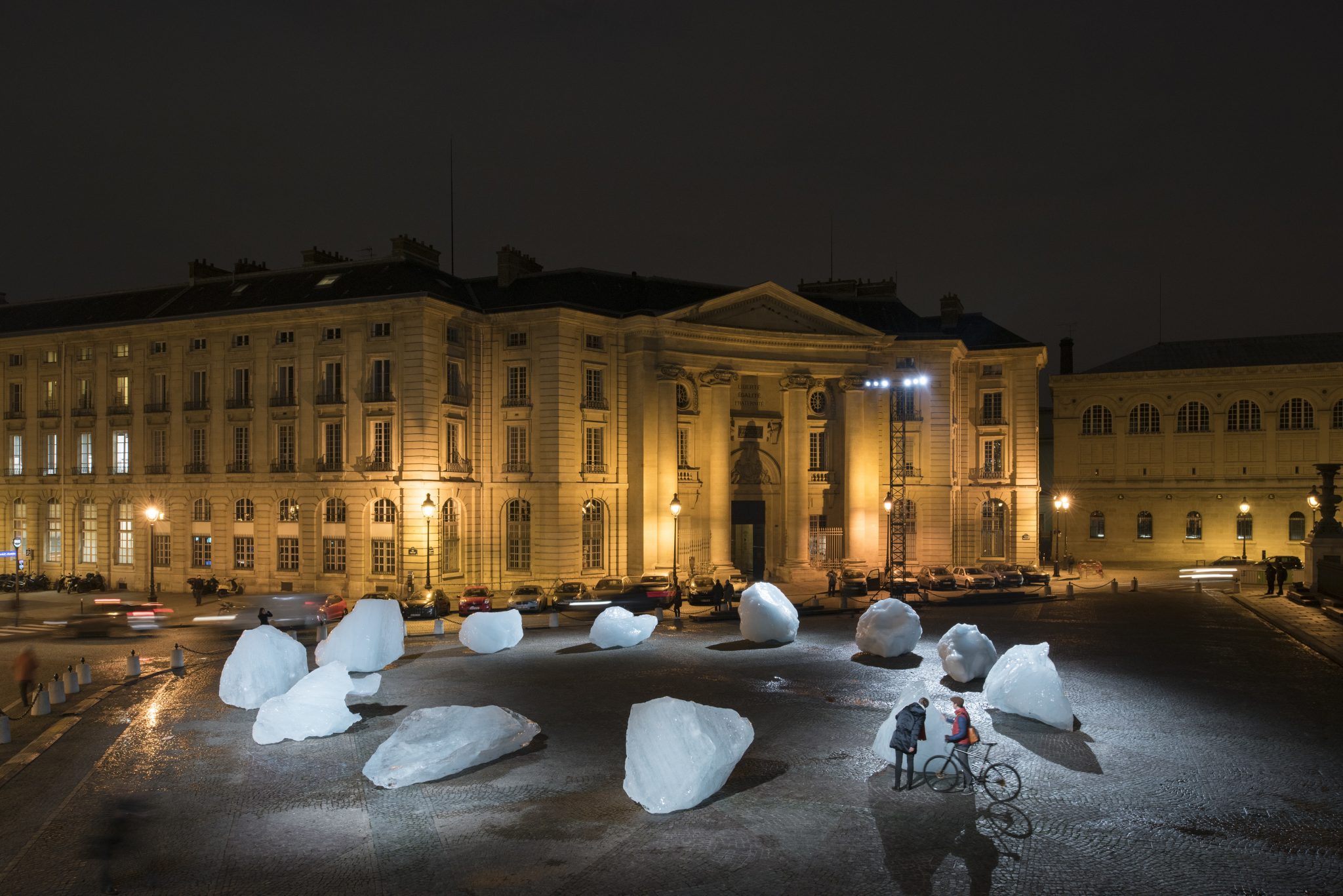How authors became climate activists at the Edinburgh International Book Festival
I am en route to the north, first to Durham and then to Edinburgh for the literature festival, and I am extremely nervous. Not about talking about my new book; after many years teaching university I’m used to speaking in public. No; my nerves are because I am about to make my debut as a climate activist.
I am no kind of activist. The mother of a young child with chronic headaches and too many deadlines, a foreigner to boot, my presence in the UK subject to Home Office approval, I have generally left the organising and the protesting to others. Selfish of me, perhaps, but I convinced myself that writing is a form of activism, that I can make a difference with my words.
So when I heard Greta Thunberg had dropped out of the Edinburgh International Book Festival because one of their main sponsors, the investment firm Baillie Gifford, was still investing in fossil fuel – only 2 percent, they protested, but that 2 percent amounted to £5 billion – I thought to myself: well, I’d better say something about that at my event, I can’t just let it go unmentioned. My own little protest, of sorts.

Then a writer I know contacted me on Twitter and offered a way to make an even bigger protest. They said they were putting together a statement asking Baillie Gifford to divest from the fossil fuel industry, and that if they do not comply, they would ask the festival to drop them as a sponsor. Otherwise, the statement went, we would have to boycott the festival the following year. I didn’t hesitate for a second before adding my name to it. In the end, 100 writers signed, including Ali Smith, Zadie Smith and Thunberg herself.
Things went on from there. One of the organisers behind the letter, Mikaela Loach, staged a walkout during her session, and the entire audience of almost 200 people went with her. Signatories read out the statement at their events. There was clapping, but there was also booing. The media started covering what was happening and the press was mostly bad. Some writers who were coming to the festival dismissed our protest, citing the impossibility of ‘ethical purity’. Letters to the Guardian suggested it would be a lot more helpful if the authors talked about what they were doing to combat climate change, rather than threatening the festival. (See paragraphs nine and ten, below.) There were reports of festival workers being rattled and upset. And to cap it all off, a nasty Twitter account sprang up calling itself the Author’s Yurt and targeting women of colour who’d signed the letter.
Although I had been planning all along to talk about Baillie Gifford, I felt a particular kind of pressure now. I would make a terrible politician; I never studied debate and I can’t reel off statistics or needle anyone into agreeing with me. How could I possibly begin to serve or represent this cause?
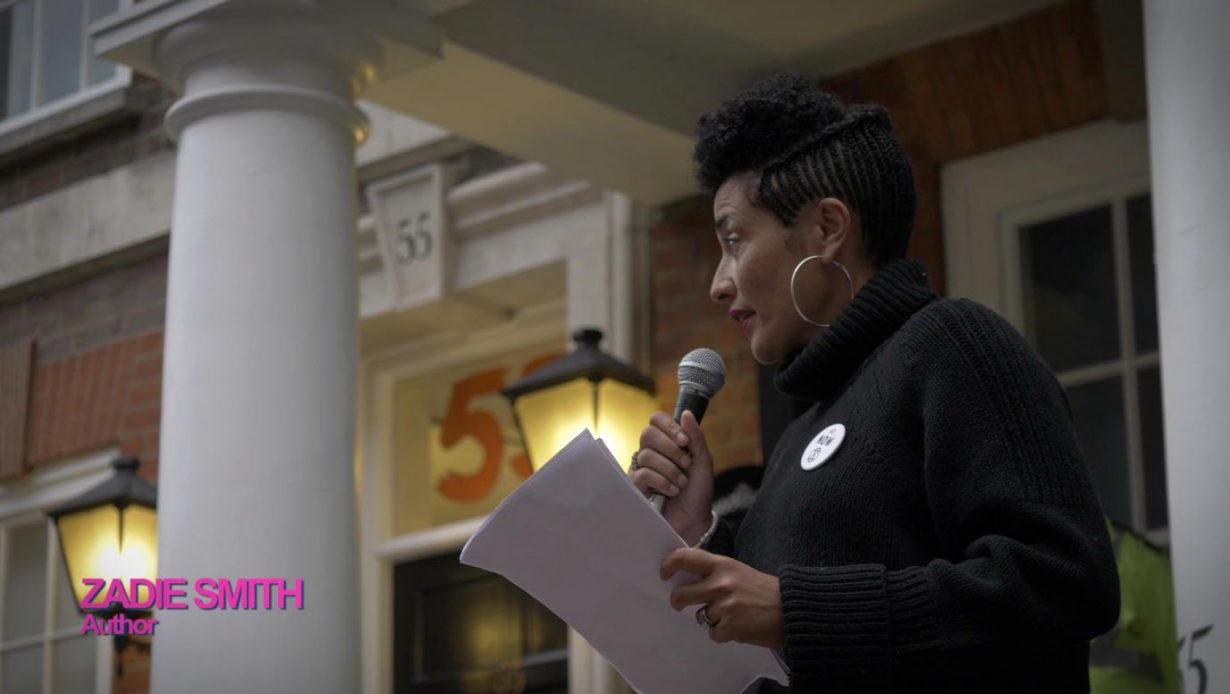
I’m hardly qualified to speak on its behalf. I lived in Paris in 2015 when the city hosted COP21, but I wasn’t really paying attention; I saw ‘the environment’ as something people who were good at science or really outdoorsy cared about. Some friends went down to see Olafur Eliasson’s ice sculpture (Ice Watch, 2014) slowly melt in front of the Panthéon, and I indulgently listened to them talk about their niche interest. I knew the world was in a bad way, but I assumed the scientists were working on it.
But in the past few years my entire worldview has changed. For argument’s sake, say it happened in 2018 when I became a mother, though it may have been when I first read a chilling excerpt from David Wallace-Wells’s The Uninhabitable Earth (2019) in the Guardian; or when I read about the young woman who created no more rubbish in the course of one year than would fit in a mason jar; or about the wildfires in Greece or the mudslides in California or, say, when the temperatures started climbing to unheard of numbers in the summer; or when the Trump administration started systematically dismantling the environmental legislation introduced in the US by the Obama administration; or when Mia Mottley, the prime minister of Barbados, made her galvanizing attack on industrialized nations at COP27, speaking on behalf of the nations of the Global South: ‘We were the ones whose blood, sweat and tears financed the Industrial Revolution,’ she said. ‘Are we now to face double jeopardy by having to pay the cost as a result of those greenhouse gases from the Industrial Revolution? That is fundamentally unfair.’
Which is to say it happened slowly and all at once, a thing that occurred and is still ongoing. Our building in Paris lacked a recycling bin? I phoned up the city and had one installed. When we moved to London and found our massive block of flats didn’t have one either, I schlepped our glass, aluminium and paper a quarter of a mile to the closest recycling point. Now we’ve moved to the suburbs and we have our own recycling bin and compost heap, but we still refuse to get a car. We avoid flying when we can, as well as meat, plastic and cow’s milk, oh so worried about our carbon footprint.
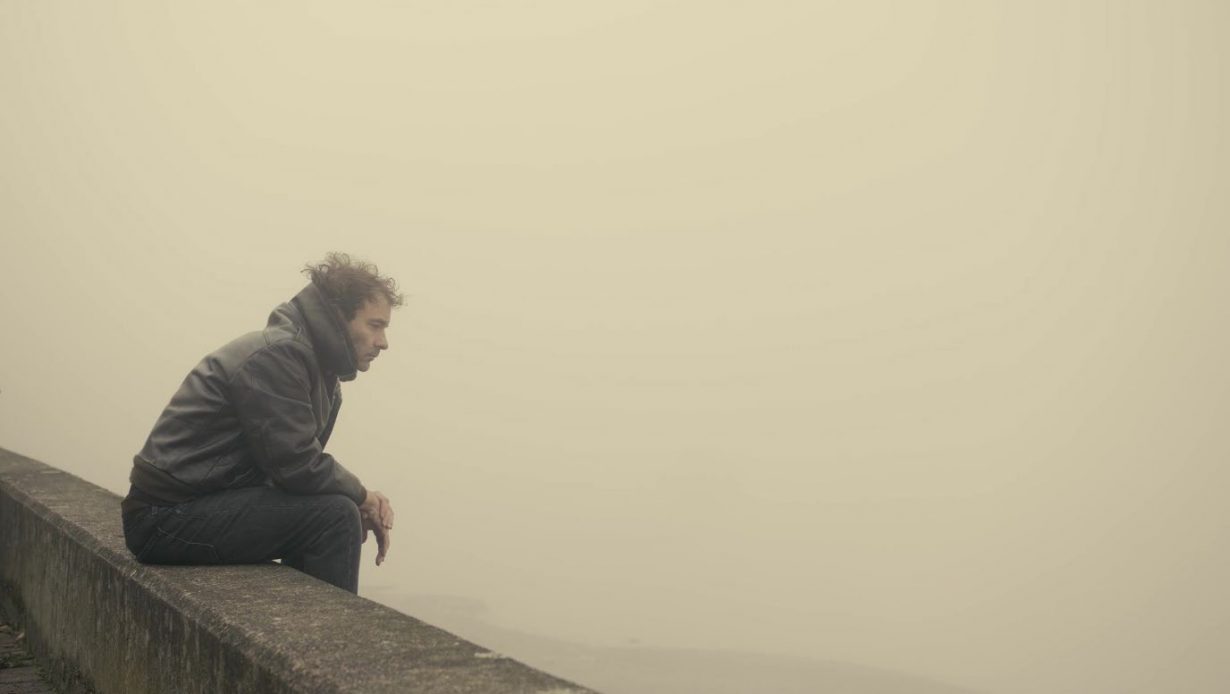
And then I learned that it was the fossil fuel companies themselves who invented that term to distract us all from the fact that they continue to turn a profit while the world burns. That they are actively funding climate denial, though they’ve long known what was going on: as early as the 1970s, ExxonMobil knew the damage they were inflicting on the environment, and they started lobbying governments to prevent anyone from actually doing anything about it. They wanted us to keep buying their gasoline, plastics and other petrochemical products and told us that as long as we were recycling all would be well. All my worrying about how much food waste we were creating, saving up to add solar panels to the roof – I was driving myself crazy and into debt trying to help matters, when the people who were really responsible, who could actually make a difference, were doing fuck all.
So there I was on the train, feeling intensely angry, frustrated, impotent and full of dread. In need of outside help to navigate the situation, I opened up my laptop and turned on Josh Appignanesi’s new film My Extinction, which had come out a few weeks before. What better way to sort through my anxieties about my conversion from climate agnosticism to climate activism than watch a film about one man’s conversion from climate agnosticism to climate activism?

Like much of Appignanesi’s recent work, My Extinction is somewhat autofictional; it stars the director himself as a freelance filmmaker whose funding on his next big feature has just fallen through. With some unexpected free time on his hands, he starts hanging around Extinction Rebellion protests, attending non-violent direct action (NVDA) training sessions, getting increasingly involved in the planning of protest actions. Late one night he watches a video of 16-year-old Thunberg telling the European Parliament to act as if the house was on fire. He tries to talk to his kids about it, but they’re more concerned about the menace of ‘Daddy monster’. He talks things through with his wife, the writer and scholar Devorah Baum, as well as with friends, from psychoanalysts to anti-natalists. In this way, My Extinction is a film about community – but it is also about the role affect and language play in creating and maintaining those bonds. It is about the limits of language to address imminent catastrophe, but also but the necessity of finding words to describe what’s happening, to tell stories that will convince and move and make a difference.
Climate, in My Extinction, is an epistemological problem, a problem of articulation. The film includes passages where writers and activists talk about talking – what we mean when we talk about climate, and how we make people, ourselves included, understand that we really mean it. ‘If we can somehow hold onto’ those meanings, says the group leader at an NVDA training Appignanesi attends, ‘they can fuel our rebellion’.
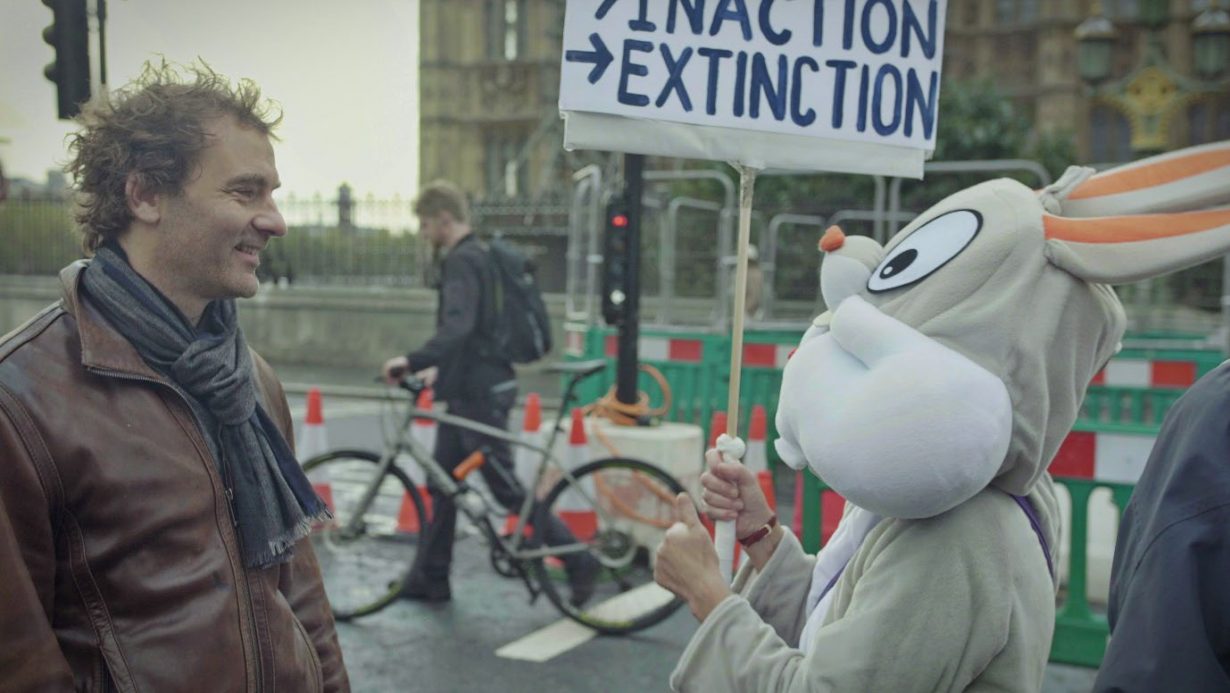

My book is about art and feminist activism, the onus that’s been placed on women to tell their stories, how difficult that can be, and how impossible it is to be believed, for our words to make any concrete difference in the world. I look at artists and writers like Theresa Hak Kyung Cha, Kathy Acker, Ana Mendieta, and Kara Walker, at how they put into action Virginia Woolf’s call in A Room of One’s Own to ‘break the sequence’ and ‘break the sentence’. I look at performances like Suzanne Lacy, Aviva Rahmani and Judy Chicago’s Ablutions (1972), Carolee Schneemann’s Interior Scroll (1975) or Sutapa Biswas’s Kali (1983–85) to see how these artists have changed not only the story of women’s bodies but the modes through which we tell stories: modes of breaking through, disrupting, inspiring meaningful action.
At the NVDA training Appignanesi attends, the group leader explains: ‘non-violent direct action is disruptive, it is resistance, and it is confrontational, it is just doing it in a peaceful way. And the core reason for this is if it’s not disruptive then nobody’s gonna care what we’re doing.’ This, essentially, is the principle driving the works I cite above and write about in my book. It is also the logic behind our organising in Edinburgh: the statement, the walkout, our promise of a future boycott.
The more I learn about the fossil fuel projects in which Baillie Gifford invests, like their funding of the East African Crude Oil Pipeline, the more I realize there is a direct line leading from my event about feminist art at the Baillie Gifford West Stage in Edinburgh to the homes of people in Tanzania and Uganda which will be destroyed if the pipeline goes through. The proposed pipeline will emit more than twenty-five times the combined annual emissions of Tanzania and Uganda. There may not be much I, a writer, can do about all of this. But if you find out that kind of line exists, it’s your moral obligation to share that information, to make the line visible to people who are probably not aware of it.
Of the many speeches in Appignanesi’s film that galvanized me and helped me turn up to my own climate protest, there was one that really got me where I live, as they say. It was the playwright, director and actor Simon McBurney, who pointed out that when people think about ‘writing’, they think that writers ‘are creating some kind of fiction, something which is outside of reality’. ‘It seems to me’, he says, ‘that the way that writers write is the opposite of that, they are actually able to draw back the curtain to help us see what is there’. In My Extinction, by filming himself and his friends, letting us into his home, his insecurities, his doubts and his anger, Appignanesi does exactly what McBurney is talking about: pulls back the curtain to reveal that behind the ‘fiction’ of the book or the film, is the writer, confronted with a real situation, and trying to say something about it.
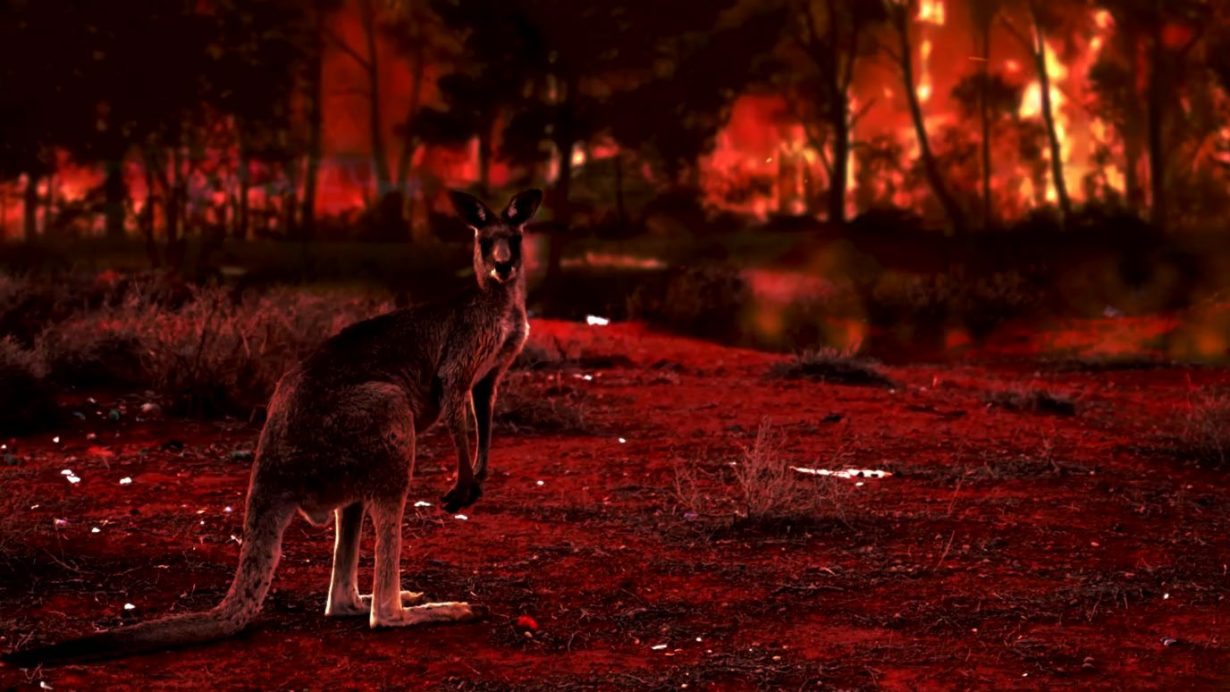

In the end, I started my event by reading a quote from Ursula K. Le Guin’s speech at the National Book Foundation in 2014:
It seemed important to challenge the way we fund our literature festivals in words, the very material that unites us. To take the thing we all love so much – literature, storytelling, critical thinking – and use it to tear away the veil, acknowledging what’s happening, while we sit in lecture theatres paid for by oil and profits from it. The festival’s response to our protest was to point out that they provide a space in which to have these conversations, to educate and inform. What so shocked me, in this first foray into climate protest, was the response to it: the way people seemed so bent on maintaining the status quo in defence of the festival they love. Respectfully, it is not the time to discuss climate change, and what ought to be done about it, but rather the time to take major steps to reverse it, to say enough is enough, it’s time for action.
Quoting Ursula Le Guin at a literary event is small potatoes next to chaining yourself to a pipeline. But it might generate its own kind of chain, a word chain, that can galvanize the reader into their own forms of rebellion.
Lauren Elkin is the author, most recently, of Art Monsters: Unruly Bodies in Feminist Art.
My Extinction is in UK Cinemas now. Full listings: http://dartmouthfilms.com/myextinction and online with Curzon Home Cinema.
